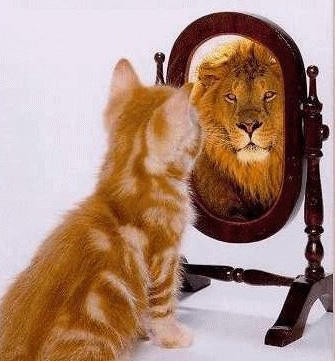My week had an…interesting start.
Why, you ask?
Because of this article: “Atheists About As Trustworthy As Rapists, To The Faithful.”
Excuse me, what?
From the article:
There are seven billion people in the world. Two billion of them are Christians. Another 1.5 billion follow Islam. Hundreds of millions follow Hinduism, Buddhism, Judaism and a number of other organized religions. In America alone, 75% of the population identifies as Christian, while only 4% of people identify as Atheists—or having no belief in deities.
And those 4% are apparently about as trustworthy as rapists to the 75%—at least, that’s what a new study in the Journal of Personality and Social Psychology says (Link to a PDF of the full study here). The research was aimed to determine how society at large feels toward atheists; whether society trusts atheists; and how much. The results were surprising: Among societies with a religious majority, atheists are among the least trusted people, on an equivalent with rapists.
The study presented scenarios in which an individual committed minor criminal acts, like stealing money out of a wallet that they found on the ground without attempting to find its owner or call the police. Apparently, “Participants felt it was highly unlikely the man would be a Christian. On the other hand, they felt it highly believable that a rapist or an atheist would behave this way.”
What does this mean for Buddhists? I don’t really want to get into the great Stephen Batchelor Buddhism debate of our times (whether or not Buddhism is equivalent with atheism) but it’s interesting to think about how others, particularly in the United States, view Buddhists and their morality.
 On one hand, Buddhism has no God in the Christian sense of the word, which can lead to a large gap in Christian-Buddhist mutual understanding. On the other hand, I think there is general distrust of atheists not because they don’t believe in a higher power, but because “atheism” doesn’t come with a prescribed moral or ethical code to follow. This apparently leads people to believe that atheists are running amok in the streets, stealing money from all the poor Christians who drop their wallets. Or, more disturbingly, that if you’re an atheist you might not have any qualms with raping someone.
On one hand, Buddhism has no God in the Christian sense of the word, which can lead to a large gap in Christian-Buddhist mutual understanding. On the other hand, I think there is general distrust of atheists not because they don’t believe in a higher power, but because “atheism” doesn’t come with a prescribed moral or ethical code to follow. This apparently leads people to believe that atheists are running amok in the streets, stealing money from all the poor Christians who drop their wallets. Or, more disturbingly, that if you’re an atheist you might not have any qualms with raping someone.
I’d say Buddhism definitely comes with an ethical code, if not many ethical codes. But how many non-Buddhists know about this? And how many non-Buddhists in the United States would equate Buddhism with atheism, if they don’t know much about it? It’s a scary thought.
Really, the problem here is with solidified concepts: concepts of atheists, concepts of rapists, concepts of Christians, etc. The entire study seems to be built around the solidification of these, leaving no room for the subtle nuances of humanity that don’t fit around a label. And in terms of avoiding concepts, I think we Buddhists take the cake on that one, don’t we?
Still, though, sometimes following concepts can be important and lead to productive action, as in this other piece of Buddhist news from Wednesday: “Nepal Buddhists demonstrate against Maoist leader.” Maoist Chief Pushpa Kamal Dahal was recently appointed director of the Lumbini Development Committee. Now Nepali Buddhists are insisting that “a follower of Buddhism should be appointed to the post.” Their biggest worry is that the politicians will “breach the sanctity” of the Buddha’s birthplace by turning Lumbini into a massive tourism destination.
Judging by India’s Mahaparinirvan Express, that’s probably a valid worry.
In other worrying news, the 17th Karmapa has officially been charged in India for illegal possession of foreign currency, forgery, and conspiracy. The case hasn’t gotten past local court yet. And Karma Chungyalpa, the Karmapa’s administrator, said in the article that the Karmapa himself hasn’t even been notified of the charges, so it’s very unclear how far all of this is going to go and what it says about Indo-China relations (personally I don’t think it says anything new).
The fact that this was published in the Grey Lady is important, though, especially considering our questions about public perception of Buddhism. The go-to claim is that Buddhism enjoys an especially fuzzy media image. But when 9 out of the fifteen Buddhism articles that the NY Times has published over the last two months have to do with either criminal activity, self-immolation, or suicide, is public perception changing?
Photo from http://www.sanjeevhimachali.com/?p=431.
Thank you for subscribing to Tricycle! As a nonprofit, we depend on readers like you to keep Buddhist teachings and practices widely available.